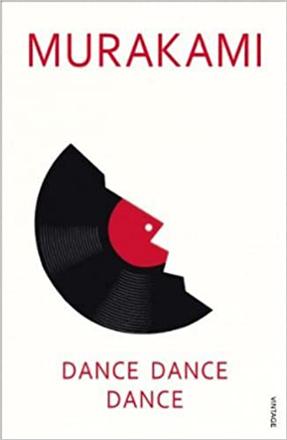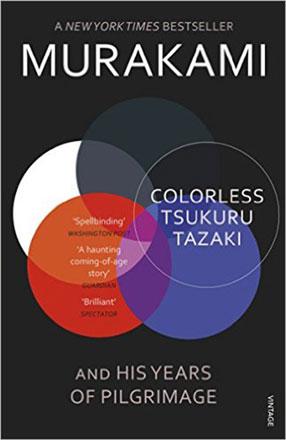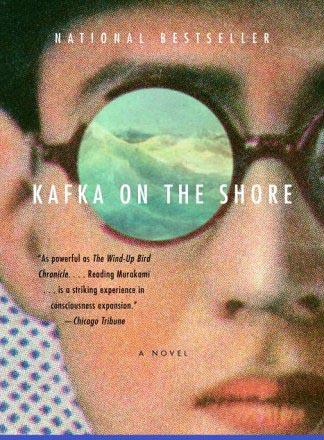You are here
The cross hair between real and imaginary
By Sally Bland - Dec 13,2020 - Last updated at Dec 13,2020

Dance Dance Dance
Haruki Murakami
Translated from the Japanese by Alfred Birnbaum
London: Vintage, 2003, 393 pp
This is Murakami’s sixth novel, written just as he was becoming famous in Japan. Taken out of context, the title seems to be about having fun; it is, in fact, named after an American pop song, one of numerous musical references in the book. Yet, the first appearance of the word, dance, in the story is more ambiguous. It seems to be more about just getting through life and doing what you have to do. Only later does one understand that it’s about needing and loving others. Meanwhile, many other things remain ambiguous throughout.
The protagonist and narrator, an unnamed Japanese man in his thirties who lives in Tokyo, experiences only fleeting moments of fun in the course of the story. Yet, in contrast to some other Murakami novels, the ending holds out the promise of real happiness. Still, the narrator hedges his bets, saying, “anything can happen. This world is more fragile, more tenuous than we could ever know”. (p. 392)
Memory plays a big part in unlocking the plot. After recurring dreams of the Dolphin Hotel, where he had stayed four years before with a woman he cared for, but who disappeared, the narrator feels compelled to return there, though it was far from attractive: “Its corners caked with unfulfilled dreams.“ (p. 4) What draws him back is a premonition that he belongs there and that this woman is cryingout to him.Travelling to Sapporo, where the hotel is located, should be easy as he has no fixed commitments. In fact, he is lonely, his wife having left him and a good friend having died; he thinks his work as a commercial writer is meaningless. Hopefully, by returning to the Dolphin Hotel, he can shake off his feeling of being an outsider and reclaim himself.
The protagonist’s existential crisis and his social critique are expressed in a particularly acute manner. The meaninglessness of his work is the entry point for the narrator to inject many critical comments on “the giant anthill of an advanced capitalist society”, which provides work but no meaning in life, which entails massive waste from thrown-out restaurant food to unnecessary military expenditures, and invites corruption of various kinds. Assumedly echoing Murakami’s own views, the narrator describes advanced capitalism as the “new mysticism. People worship capital, adore its aura, genuflect before Porsches and Tokyo land values. Worshipping everything their shiny Porsches symbolize. It’s the only stuff of myth that’s left in the world”. (p. 55)
In contrast, the protagonist extols his simple life and loves his used Subaru.Music, reading, a good meal and finding a companionable woman are his idea of pleasure. He seems to be a very rational person, a quite ordinary guy and is puzzled by the weird things that begin to happen to him. Yet, this is a Murakami novel, almost always furnished with an alternative reality, and he is soon “caught in the cross hair of the real and the imaginary”. (p. 161)
Arriving at the Dolphin Hotel expecting to find his former lover and return to the past, instead he finds the epitome of the advanced capitalismhe scorns. The hotel’s previously shabby façade has been supplanted by an enormous, glittering “Bauhaus Modern-Art Deco symphony of glass and steel”, equipped with the requisite luxuries. The old hotel’s air of eccentric mystery is gone and he fears he will not find what he is seeking. Though his queries produce no answers about what happened to the old hotel, arousing his suspicions that something is fishy, the new one houses a set of characters who will eventually change his life. He befriends the charming receptionist who instinctively seeks him out when confronted by strange happenings in the hotel, as well as a teenage clairvoyant, a poor-little-rich girl, whose parents have neither the time nor insight to meet her emotional needs. Most surprising is that he finds the Sheep Man, whom he knows from his previous visit, in a parallel world hidden in the corners of the hotel. To the Sheep Man, he is able to confess his feelings of alienation: “How nothing touched me. And I touched nothing. How I’d lost track of what matters.” (p. 83)
The Sheep Man suggests a throw-back to a time when life was simpler and there was more harmony between man and nature. It is he who instructs the protagonist to dance, starting him on the process of reconnecting with himself and creating meaning in life through his relationships with others. But before that happens, he meets a number of singular and sometimes flamboyant characters, as only Murakami could have created, and undergoes experiences ranging from the tender and intimate to the horrifying. But the greatest creation is the voice of the protagonist-narrator which balances betweencynicism and innocence without missing a beat. “Dance Dance Dance” is available at Readers Bookshop.
Related Articles
Killing CommendatoreHaruki Murakami Translated from Japanese by Philip Gabriel and Ted GoossenNew York: Alfred A. Knopf, 2018Pp.
Colourless Tsukuru Tazaki and his years of pilgrimageHaruki MurakamiUS: Vintage, 2015Pp.
There is an unusual, haunting love story intertwined with a coming-of-age novel, both infused with elements of myth, science fiction, philosophy and multiple cultural references.


















